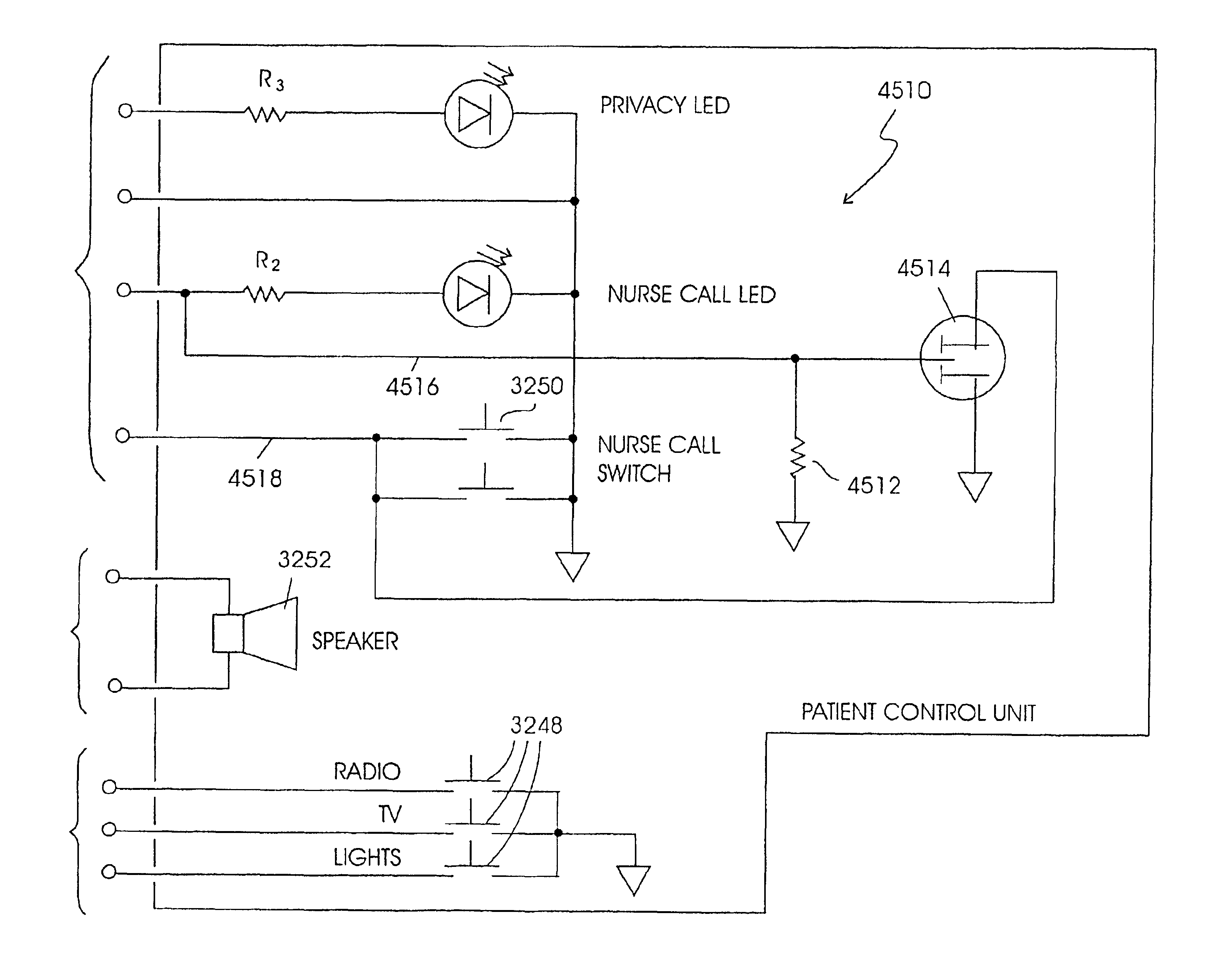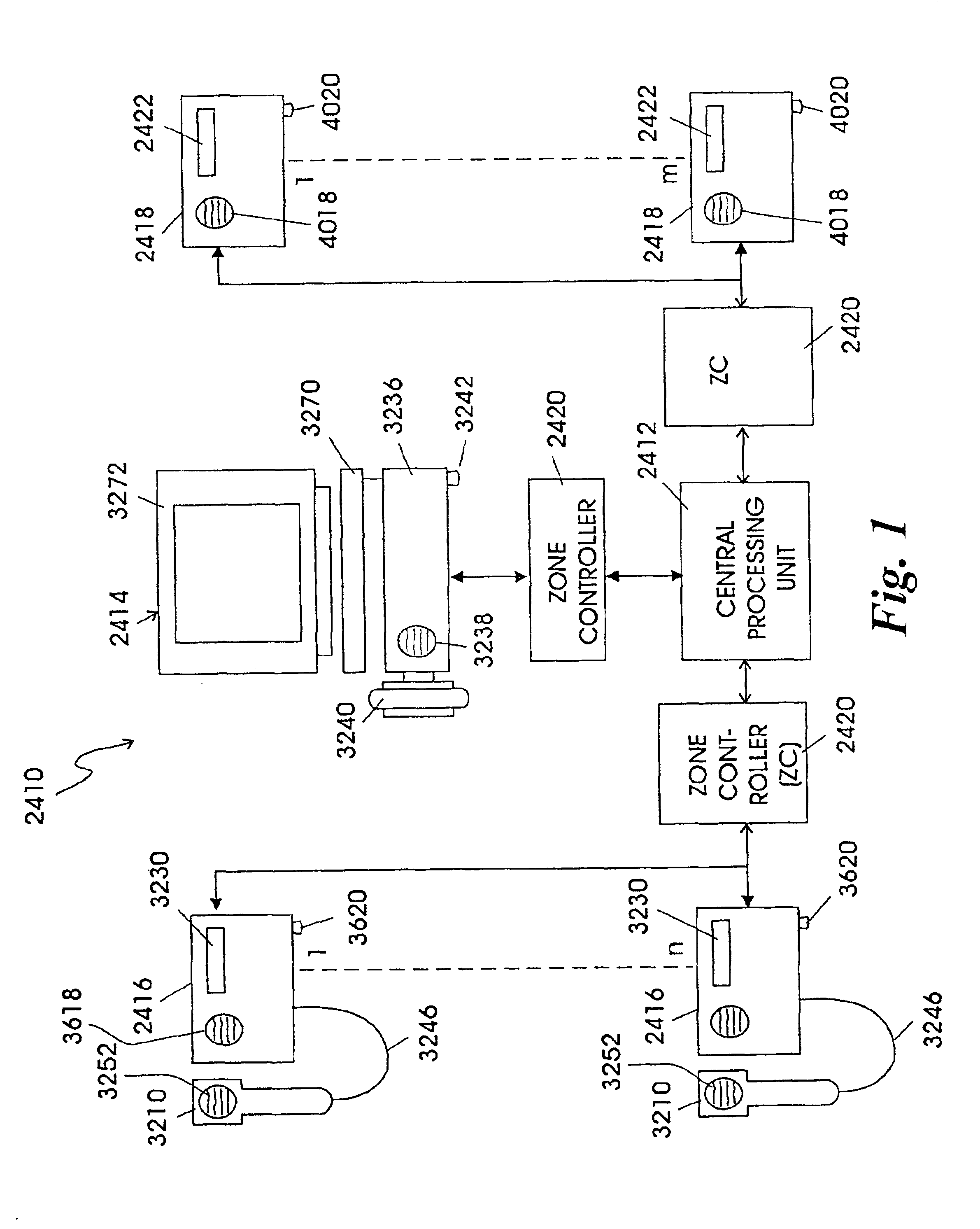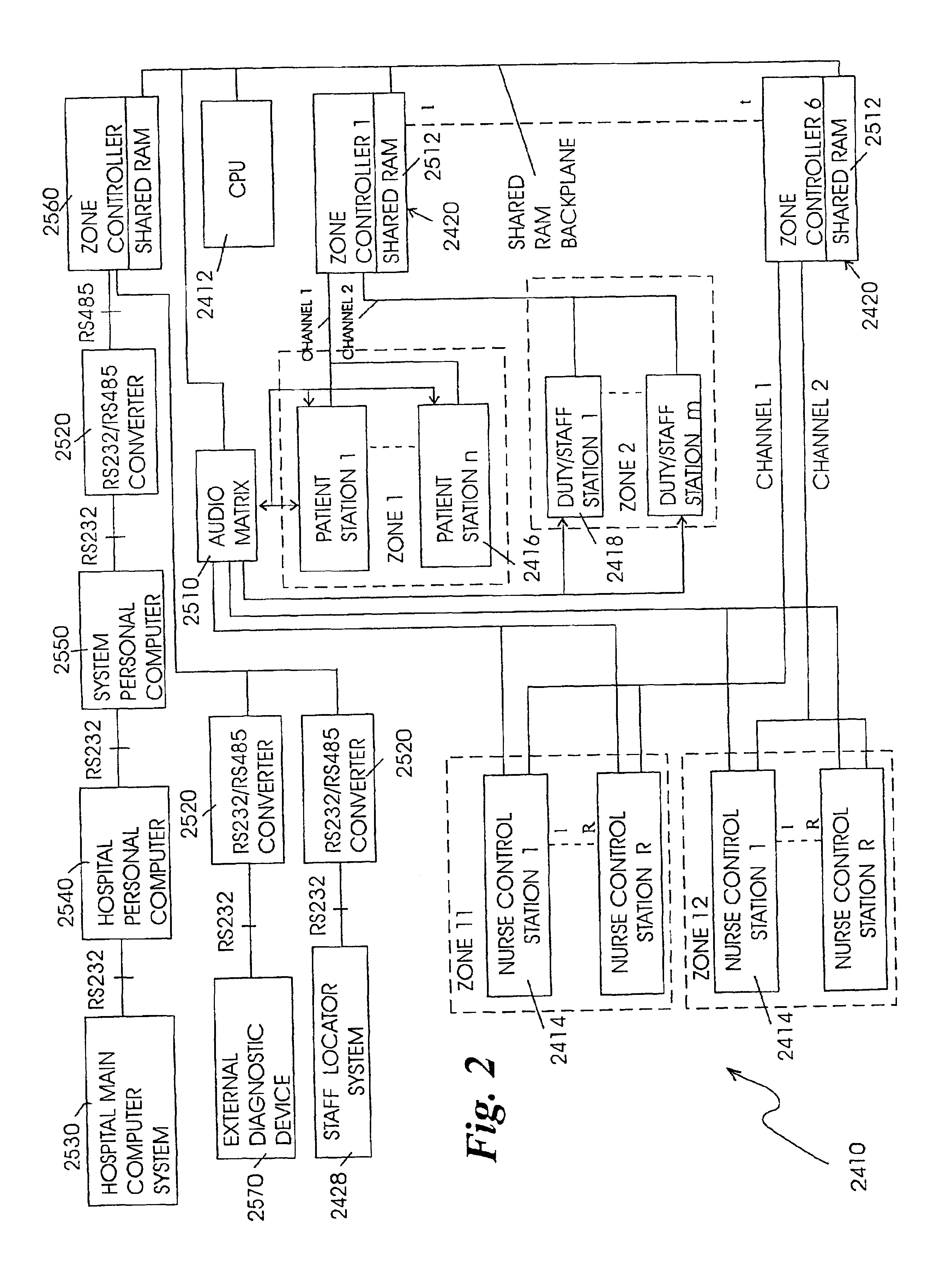Patient care and communication system
a communication system and patient technology, applied in the field of patient care and communication system, can solve the problems of increasing the stress on the nursing staff, the task of performing, and the approaching of information overload, and achieve the effect of facilitating visual and data communication
- Summary
- Abstract
- Description
- Claims
- Application Information
AI Technical Summary
Benefits of technology
Problems solved by technology
Method used
Image
Examples
Embodiment Construction
[0059]Generally, the patient care and communication system of the present invention includes a communication network that provides routine and emergency signaling to health care facility staff members and provides high fidelity voice communication and data transmission between staff members in the health care facility and / or between patients and the staff members.
[0060]The exemplary embodiments of the automatic staff locator system of the patient care and communication system of the present invention described below, use a memory card as a personal database. As used herein, a memory card is a device approximately the same size and shape as an ordinary credit card which includes a non-volatile programmable memory. In the card used in the embodiments described below, two types of memory are used: an electronically erasable read only memory (EEROM) located internal to the card and a magnetic stripe located on the surface of the card. It is contemplated, however, that other forms of int...
PUM
 Login to View More
Login to View More Abstract
Description
Claims
Application Information
 Login to View More
Login to View More - R&D
- Intellectual Property
- Life Sciences
- Materials
- Tech Scout
- Unparalleled Data Quality
- Higher Quality Content
- 60% Fewer Hallucinations
Browse by: Latest US Patents, China's latest patents, Technical Efficacy Thesaurus, Application Domain, Technology Topic, Popular Technical Reports.
© 2025 PatSnap. All rights reserved.Legal|Privacy policy|Modern Slavery Act Transparency Statement|Sitemap|About US| Contact US: help@patsnap.com



